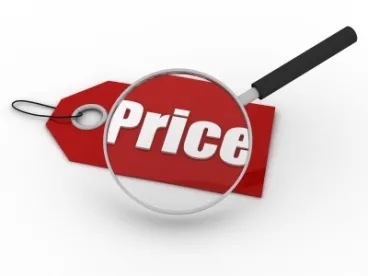This spring, at the onset of the COVID-19 pandemic, President Trump issued Executive Order 13910 to prevent the hoarding of health and medical resources necessary to respond to the pandemic in the U.S. Issued on March 23, the executive order delegated this duty to the Department of Health and Human Services (HHS), authority under section 102 of the Defense Production Act (DPA). To effectuate the executive order, HHS published a notice on March 30 in which it designated specific categories of medical and health resources as “scarce” or “threatened” within the meaning of the DPA. The equipment deemed scarce or threatened in the notice includes:
-
Respirators, including those designated as N-95 and others
-
Ventilators, both portable and stationary
-
Any drug products containing chloroquine phosphate or hydroxychloroquine HCl, an anti-malarial drug
-
Sterilization services for medical devices and sterilization devices
-
Disinfecting devices
-
Medical gowns or apparel
-
Personal Protective Equipment (PPE) coveralls, e.g. Tyvek suits
-
PPE face masks, surgical masks, and face shields
-
PPE gloves or surgical gloves
Under § 4512 of the DPA, it is now unlawful for any individual or company to accumulate these designated materials at levels “in excess of the reasonable demands of business, personal, or home consumption” or “for the purpose of resale at prices in excess of prevailing market prices.” Any violators of the price gouging and hoarding provisions of the DPA are subject to potential criminal liability.
“Any person who willfully performs any act prohibited, or willfully fails to perform any act required, by the provisions of this subchapter or any rule, regulation, or order thereunder, shall, upon conviction, be fined not more than $10,000 or imprisoned for not more than one year, or both.” 50 U.S. Code § 4513.
Additionally, the DOJ has charged defendants in one recent case with Conspiracy to Violate the DPA under 18 U.S. Code § 371, which states: “If two or more persons conspire either to commit any offense against the United States, or to defraud the United States, or any agency thereof in any manner or for any purpose, and one or more of such persons do any act to effect the object of the conspiracy, each shall be fined under this title or imprisoned not more than five years, or both.” The maximum fine under 18 U.S. Code § 3571 is $250,000.
Some Details Remain Unclear
Most state price gouging laws focus on the price charged and provide specific benchmarks for what triggers price gouging. But the DPA does not provide this type of well-defined guidance. The DPA instead prohibits “accumulation” as a triggering condition for price gouging liability, and bans “prices in excess of prevailing market prices.” The DPA does not define many of its key terms, including “accumulation,” “in excess of reasonable demands,” or “prevailing market prices.” It’s unclear from the text of the statute whether the “prevailing market price” refers to prices before the present emergency or in comparison to present prices. In addition, there is extremely little case law discussing the price gouging portion of the DPA.
According to a recent National Law Review Article, “[u]ntil courts have dealt more with the price gouging provisions of the DPA and defined some of the key terms, state law may provide the closest analogue to shed light on unanswered DPA questions. While ‘excess’ may not be defined, existing state laws provide for price increases between 10% and 30%, and this range provides a reasonable starting point for any pricing decisions.”
The article also highlights best practices for confronting DPA compliance in the current environment, including “determining whether your goods or services are covered, making sure to track and document pricing and cost information as well reasons for any price movements, and making efforts to ensure that prices do not exceed any conservative benchmarks.”
It is clear that the DPA is broad in its enforcement reach. In addition to going after the primary alleged actor, the DPA reaches others associated with assisting the primary actor. The DPA prohibits any person from:
-
“solicit[ing], influenc[ing] or permit[ting] another person to perform any act prohibited by . . . the Defense Production Act;
-
conspire[ing] or act[ing] in concert with any other person to perform any act prohibited by . . . the Defense Production Act; or
-
deliver[ing] any item if the person knows or has reason to believe that the item will be accepted, redelivered, held, or used in violation of the Defense Production Act.” 15 CFR § 700.74.
This broad reach could potentially subject an individual assisting a company with the sale of designated scarce or threatened materials in a manner that violates the DPA to the same criminal liability as the seller.
Enforcement is Fast and Fierce
The Department of Justice (DOJ) and HHS are actively enforcing the DPA against alleged price gougers during the current pandemic. To enforce the DPA, the DOJ formed a COVID-19 Hoarding and Price Gouging Task Force. The DOJ has already began confiscating medical equipment that has been deemed scarce or threatened. At the end of March, the FBI seized more than half a million PPE supplies from alleged price gougers as part of an enforcement operation. The supplies were then redistributed by HHS to frontline medical workers in New Jersey and New York.
According to the DOJ, “many such investigations are underway” and “[i]f you are amassing critical medical equipment for the purpose of selling it at exorbitant prices, you can expect a knock at your door.” The DOJ issued a stern warning that “Our FBI agents and other law enforcement agencies are tracking down every tip and lead they get, and are devoting massive federal resources to this effort. All individuals and companies hoarding any of these critical supplies, or selling them at well above market prices, are hereby warned they should turn them over to local authorities or the federal government now or risk prompt seizure by the federal government.”
The recent enforcement actions by the DOJ provide some guidance on how the DPA is applied to the current pandemic environment. So far, the DOJ has filed criminal complaints in four cases (all in either the Eastern or Southern Districts of New York) bringing charges under the DPA for price gouging. In the first case filed by the DOJ for COVID-19 related price-gouging, criminal charges were brought against a defendant for allegedly amassing and selling large quantities of PPE and masks at a more than 1,300 percent markup. The subsequent instances each involved federal prosecutors filing criminal charges against companies and individuals for either overcharging or attempting to overcharge the federal government for PPE (including masks) or defrauding the federal government with offers to sell equipment that the company did not actually have. The alleged margins in these cases ranged from approximately 50 percent to 400 percent.
In addition to the potential criminal liability, there is also a significant risk of civil liability to any individual engaging in potential price gouging at this time. Most states have a price gouging statute and state attorney generals are actively enforcing the statutes to the extent they are able. Manufacturers of PPE have also started to target price gougers with civil lawsuits.
Tips to Tread Carefully
With the heightened scrutiny surrounding the sale of PPE products, practical considerations for any company selling products currently considered “scarce” or “threatened” should include:
-
Try to avoid raising margins on products covered, but also remember that under some state statutes, even keeping margins the same could still potentially violate the definition of the state’s price gouging statute.
-
Carefully document the cost basis for price increases, including whether it is necessary to offset an increase in the cost of manufacturing, acquiring, distributing, or selling the product. It will also be important to maintain records of past cost information showing the company’s historic pricing practices for the product.
-
Examine relevant state price gouging regulations as well. There is a wide disparity amongst different jurisdictions regarding price gouging with variations on products covered, what constitutes price gouging, and enforcement mechanisms.
-
Be aware of the risk of internal and external whistleblowers. The federal government and numerous states have established hotlines to report perceived price gouging.
Overall, selling health and medical resources for an increased profit during the current pandemic is a high risk activity. It could expose any individual to a high risk of liability, and if the sale is subject to the DPA, the alleged price gouger and those assisting are potentially subject to criminal liability. There is still significant uncertainty surrounding the application of the DPA and any individual or business should be cautious of the potential risks.





 />i
/>i
